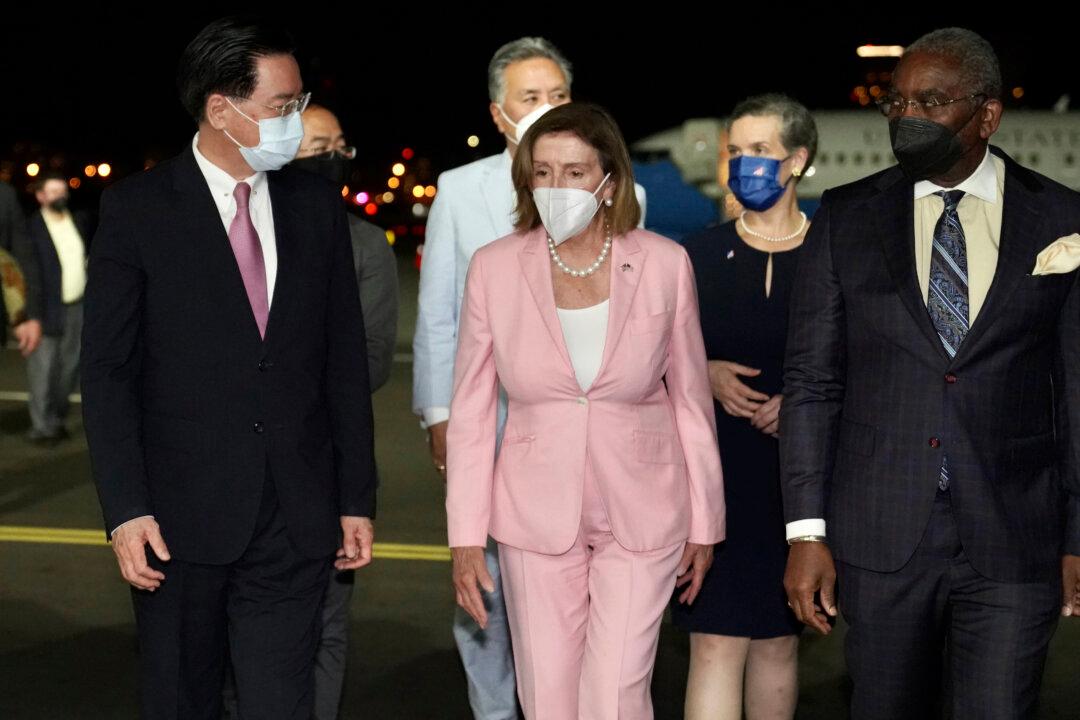House Speaker Nancy Pelosi arrived in Taiwan on Aug. 2, in spite of continued threats of violence from the Chinese Communist Party (CCP) and its propaganda organs.
Pelosi issued a public statement upon arrival in Taiwan, celebrating Taiwan and the United States’ shared commitment to democratic values in the face of adversity.




